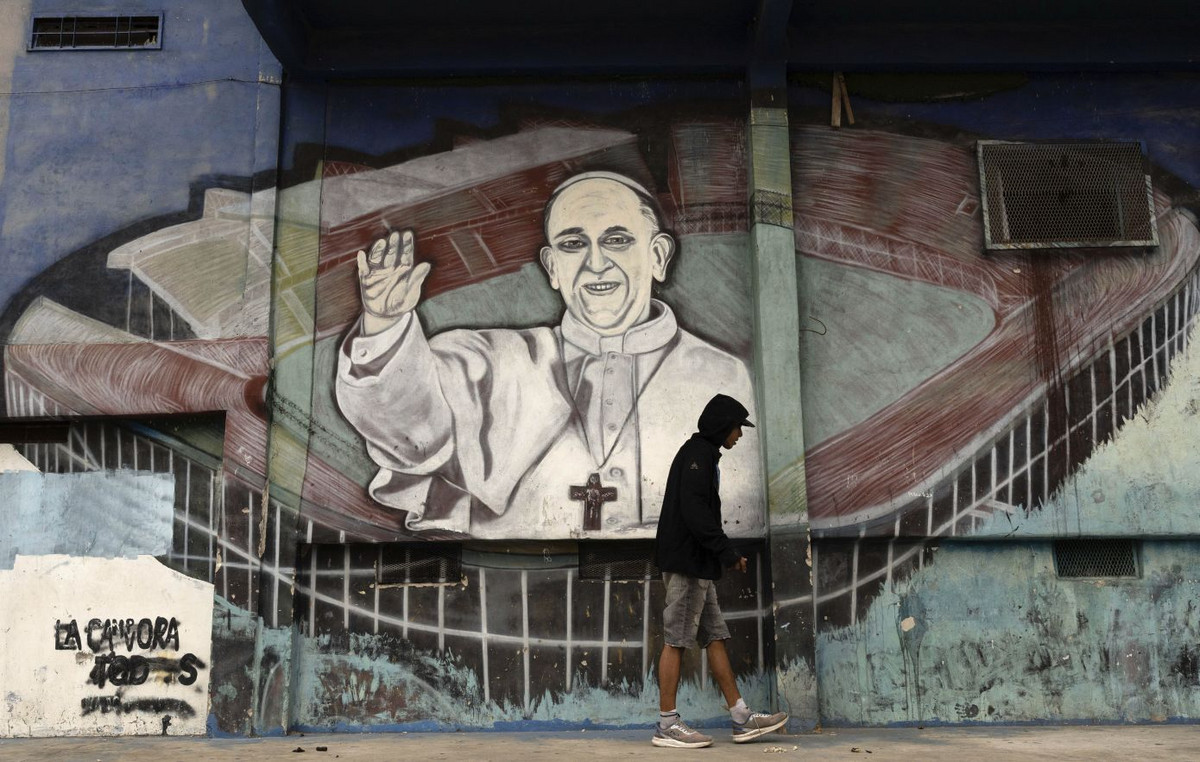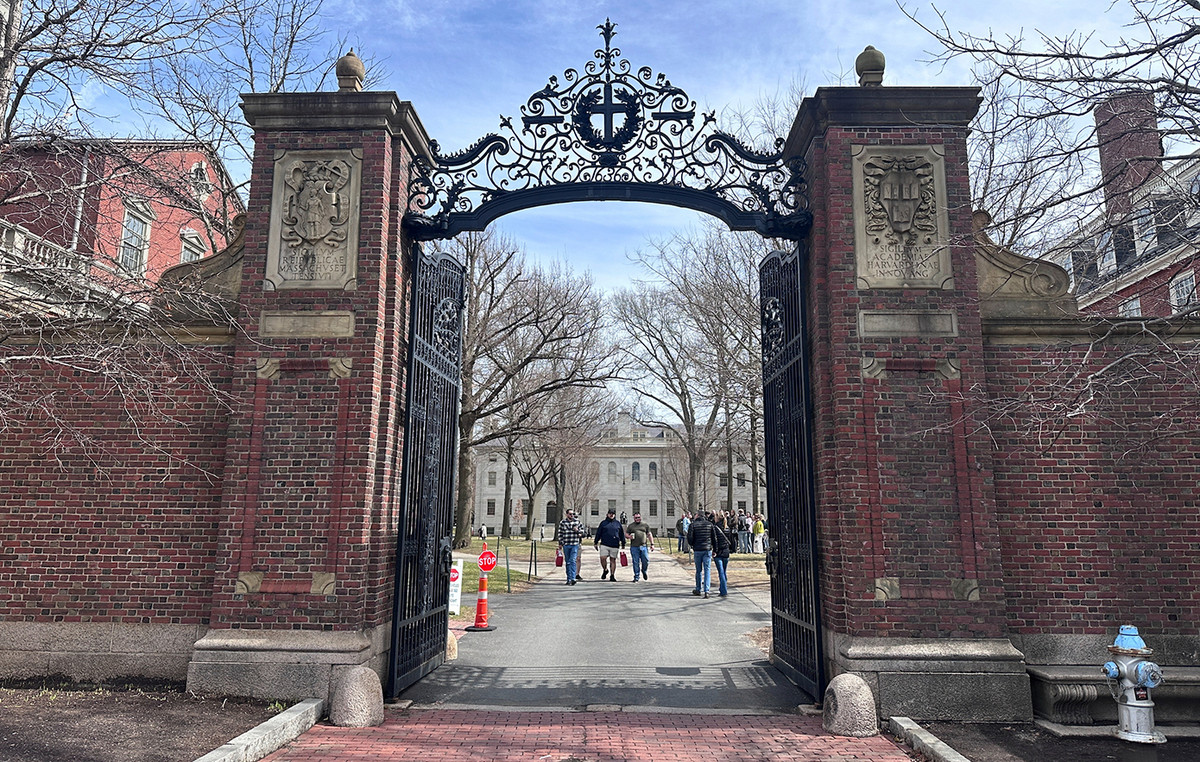In the coming weeks, in the middle of summer in the northern hemisphere, Canadian firefighter Markus Pukonen must return to his hometown of Toronto, seven years after starting an epic journey to go around the world using only his “muscles and a little wind”. .
In that time, the adventurer has walked, canoeed, kayaked, biked, tricycled, skied, dinghy, trimaran, rafted, sailboat and stand-up paddle boarded his way through 29 countries in support of a sustainable world future.
“No planes. No trains. No cars. Without even an elevator,” says Pukonen of his epic adventure. He traveled about 80 thousand kilometers not counting engines.
With several expeditions under his belt before the big adventure, including paddling down the Mississippi River, Pukonen had been trying this particular trip for a while.
But it wasn’t until he found out that his father had only a few weeks to live that he finally decided to leave.
ambitious mission
“I was fighting wildfires in Canada, and my dad called and told me he had been diagnosed with acute myeloid leukemia,” he says.
“I asked myself what I would want to be doing if I found out I was going to die in a few weeks. How can I live my life with no regrets?”
After spending time with his father, who passed away about six months after that fateful phone call, the firefighter began making plans for a trip that would take him around the world without using engines.
However, it would be another seven years before his departure. Pukonen explains that he originally planned to make a film documenting the entire journey, and even looked into documentary production, but was unable to secure funding. He finally decided to go anyway, and used a full five months to work on his fitness.

The adventurer traveled North America’s Lake Superior on a trimaran. / Routes of Change.Before starting the trip, Pukonen founded the non-profit organization Routes of Change with the aim of raising funds and bringing awareness to small social and environmental organizations along their journey.
After several “super stressful” weeks, he walked off the steps of his former Toronto home on July 13, 2015 and walked to a canoe on Lake Ontario.
“I started on the street where I was born. And everything has been pretty crazy from that moment on,” he explains, describing how the tension that had been building up inside him was “completely dissolved into thin air” as soon as he took that first step.
“No matter what happened, I was doing exactly what I wanted on the planet,” he adds.
Since then, Pukonen has used a tricycle to traverse the Canadian prairie provinces, skied across British Columbia, used oars to sail to the US state of Washington, sailed to Hawaii, cycled through Macau and Vietnam, and used a kayak. in Indonesia.

Pukonen, who stresses that he is not “anti-motor”, admits that he has been quite surprised by some of the reactions to his decision to abandon motor transport altogether.
“People forget that 150 years ago nobody used engines. The fact that what I’m doing is considered such a crazy and amazing thing [para algumas pessoas] It’s very bizarre to me.”
“We forget very quickly about our recent history. We survived perfectly well and lived without engines, ”she philosophizes.
As he travels around the world, Pukonen visits organizations such as the Blue Dragon Children’s Foundationa charity that provides care to children and families in crisis in Vietnam, and the Clayoquot Actiona conservation society based in Tofino, Vancouver Island, and shares the stories of locals.
Although most of his trip was funded by donations from supporters, he was provided with various means of transportation, including a canoe, given to him by a Canadian company called Swift Prospector Canoe, and some equipment to use outdoors. The firefighter has an official sponsor, Canadian tea brand JagaSilk.
“My biggest supporters are people I met while traveling and were super inspired by what I was doing,” he says. “They have been like angels helping me when I needed it”.
In April 2021, Pukonen left India for the Seychelles, a trip that took about 40 days.
His girlfriend, who he met in India while border restrictions were in place due to the Covid-19 pandemic, joined him in the Seychelles, and the couple sailed to Tanzania, Mozambique and South Africa together.
Afterwards, he traveled alone to Brazil and then to several Caribbean islands and until he arrived in Florida. From Florida, Pukonen went stand-up paddleboarding to Savannah, Georgia.

At the time of writing, Pukonen was riding through Georgia and says he is “about a day’s ride away” from donating his bike and riding the Appalachian Trail, which crosses 14 states to Maine, closer to home. .
“I can walk the trail to the Hudson River outside New York,” he says. “Or I can leave early and go to Toronto.”
He explains that he will need to find a new mode of transport to get off the trail. However, he’s not entirely sure what it will be.
“Maybe a skateboard, maybe a bike, maybe rollerblades or something like that”, he lists.
Although the Canadian used nearly every form of non-motorized transport possible during his trip, he says there’s nothing quite like traveling on water.
“Being in the water brings immense peace. Stand-up paddleboarding is my preferred way to travel on the water because I don’t have to sit down. It’s a good workout. When the wind helps, it’s great”.
Traveling down the Mekong River in Vietnam and spending three months on the Caribbean island of Tobago are among the many highlights of his extensive journey, along with canoeing to Tofino with his sister and nieces, who have traveled to pay him a special visit.
“I haven’t seen them since I left Canada seven years ago, so it was a very special moment. The memory alone makes me cry now.”
The firefighter also particularly liked traveling using a pogo stick, but admits that it was a novelty in the choice of transport, and he couldn’t fit it in his luggage.
However, he says he has absolutely “no interest in traveling by bicycle” going forward, citing a particularly difficult time biking the roads of Asia as one of his biggest challenges.
“Many cars spew black smoke in our faces. And some of the cultures are very aggressive with the horn. So we add noise pollution to air and light pollution. It’s all very intense.”
In addition to biking through parts of Asia, one of the most physically taxing parts of the trip to Pukonen was skiing across British Columbia during particularly cold weather.
“It is very difficult to camp in such a cold weather. When I finished, I concluded that I would not do that anymore”.
Now, just months away from completing his journey, Pukonen is picking up the pace so he can be back in Toronto for a summer house party, and is looking forward to getting together with family and friends.
“I plan the party for the beginning of July. I just need to walk really fast to get there in time.”
Pukonen has few plans for the post-celebrations beyond “doing something creative” and growing food.
“I generally like to live in the present moment,” he says. “That’s why I love to travel so much. Because it’s much easier to live in the present moment while traveling. We just wake up, decide what we want to do and survive on instinct, as opposed to a predetermined or social plan for me.”
He also plans to write a book about his incredible journey and even hopes to turn his story into an adventure film “like no other”.
When he reflects on the past seven years, he says it’s hard to take in how much he’s achieved.
“I have a hard time giving myself credit for what I did. I feel like I’ve just been riding a wave that was created by other people or the energy of the universe, and I’m just flowing with it,” he reflects.
“I don’t feel like I have any pressure to succeed or make things happen. It’s just sort of an exercise for me. And I just need to keep moving and feeding my body healthily. I’m seven years older than when I started the trip, so I feel that a little bit.”
pass the baton
While Pukonen has repeatedly said that his father’s death was his main motivation, he explains that while the difficult phone call was “part of the push” that persuaded him to leave, the journey has been much more than that.
“I would say that I am doing less for my father’s memory and more for the well-being of everyone on the planet. I like to think that my purpose is more to help everyone on the planet rather than just my dad,” she declares.
“I hope to change the way we look at the planet. And help people realize that we all have the potential to change the world. It’s just a matter of taking that first step. We all influence the world around us in ways we don’t appreciate every day. I think it’s really important to recognize and appreciate the power we have to make a difference.”
He points out that both his mother, who died when he was five, and his father “travel well” throughout their lives, and he believes that wanderlust is “in their blood”.
Although Pukonen initially hoped that his story could somehow be instrumental in creating change in the world, he had to abandon that view to some extent and is “being patient”.
“Once I put out a better product in film and book where I can express more serious thinking instead of trying to produce content while I’m exhausted on the journey, I think I’ll reach more people,” he says.
After completing his unforgettable journey, the firefighter says he would love to be able to pass the baton to another determined adventurer who can continue to spread the message.
“I don’t want the trip to end when I get to Toronto. I would like someone to continue. And I wanted to help someone continue Routes of Change in their own way.
“So if there’s anyone reading this who’s interested and wants to do something similar, just get in touch.”
Source: CNN Brasil
Bruce Belcher is a seasoned author with over 5 years of experience in world news. He writes for online news websites and provides in-depth analysis on the world stock market. Bruce is known for his insightful perspectives and commitment to keeping the public informed.







